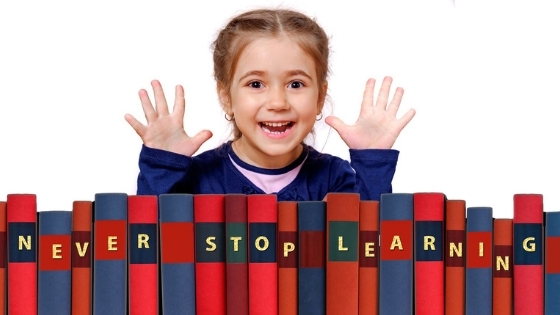There are a lot of good things our children learn at school, but as parents, we’re teachers too. Many of us may worry that mainstream schools don’t allow enough personal attention or individuality – and that they don’t sufficiently connect real life with learning.
Should you consider an alternative education or supplement a conventional one with some alternative education methods?
We take a look at your alternative education options, the pros and cons.
Homeschool
Homeschooling is a huge commitment to your child. When you choose this option, you’re undertaking to produce results that are the same as, or better than, those conventional schools achieve. You’ll also have to spend time actively seeking out opportunities for your child to meet and mix with peers and have a normal social life.
However, there are huge benefits to homeschooling. Individual attention helps children to optimize their learning speed – they’re never running to catch up with the pack or far ahead, waiting for others to catch up.
As your child develops specialized interests, you may need to sign him or her up for external courses or engage additional tuition, but although this has cost implications, the investment is worth it.
Research suggests that home-schooled children are more academically inclined than those attending conventional schools.
- Homeschooling pros: Individual attention, the child progresses at his or her own speed, potential for better academic outcomes
- Homeschooling cons: Parental time investment, need for socialization opportunities, high cost (parental time, extra tutors, learning materials, etc.), and potential regulatory hurdles.
Unschool
This is probably the most controversial form of alternative education available. Unschooling is based on the theory that children will learn naturally because they are curious about the world around them. However, it’s no cop-out for the parents who commit to it.
Although you won’t be following a structured curriculum, you’ll be watching your child closely, spotting the things he or she is interested in, and then immediately offering learning opportunities based on that.
One parent who practiced unschooling says that her twins could read by age five, but that her other son only learned by age nine. She feels that the time he spent exploring his preference for developing motor skills isn’t wasted – but a college may differ if he later develops an interest that requires formal qualifications.
- Unschooling pros: The child directs his or her education through his or her interests and is therefore always highly motivated to learn.
- Unschooling cons: Natural learning may not lead to sufficient academic skill to pursue a chosen career or get a good job. Regulatory hurdles and possible illegality.
Choose a School with an Alternative Model
There are several educational models that strive to overcome the bleaker aspects of mainstream educational systems. They range from the widely approved to the controversial. However, if you can afford the cost of sending your child to a private school (it could be cheaper than homeschooling), you might consider one of these models:
1. Montessori Schools
Dr. Maria Montessori was among the first educationalists who believed that children are capable of directing their own learning. Primary and elementary schools often adopt her model with success. Students are given a lot of freedom of choice in how they spend their school day and are encouraged to learn through play and tactile learning.
There are no formal tests or grades in these schools, yet thousands of schools in the US have adopted the model, producing graduates who researchers say have better social and academic skills than their peers. There’s no need to look far for a success story: Google cofounders Sergey Brin and Lawrence Page attended Montessori schools.
2. Waldorf-Steiner Schools
German scientist and philosopher Rudolf Steiner developed the Waldorf method in the early part of the twentieth century with a model school that soon became the largest private school in Germany.
Steiner felt that children pass through defined stages in which they are ready to assimilate new kinds of knowledge. For the first seven years, the emphasis is on play rather than academic content – but Steiner still felt that children should be able to read by age seven. Interestingly, he believed that writing should come before reading.
Between the ages of seven and fourteen, the focus shifts from play to creativity and imagination, dance, learning foreign languages and so on. From the age of fourteen, Steiner felt that children would be ready for greater structure and a higher emphasis on social responsibility.
3. The Harkness Method
It’s not a method often employed, but some private schools have adopted the Harkness Method if only for extra tuition classes. In this alternative education method, it’s not the subject matter that differs as much as the situation and attitude with which it is presented.
Instead of a regular classroom with the teacher at the front of the class, learning takes place around an oval table. The subjects are discussed rather than taught, and participation drives learning forward.
Research has shown excellent memory retention and subject-matter engagement when this method is used, but regretfully, it is too time-consuming and requires groups too small for most public school settings.
4. Sudbury Schools
It could be said that Sudbury Schools, a concept from the late nineteen sixties, are the school-based equivalent of unlearning. Age groups are mixed, children and staff have equal say in how the school is run, and there are no formal classes. Instead, the children explore learning in the ways they want – including play.
A Sudbury education has the value of being completely individualized. Presumably, a child with a natural leaning towards learning will do well later in life with a Sudbury background. However, the assumption that children will learn what they want to learn when and how they want to learn it could lead to a situation in which educators fail to take any responsibility for a child’s development.
There could also be vital gaps in learning that make it difficult to pursue further education.
- Alternative schooling pros: A lack of peer-to-peer competition and pressure to succeed are among the benefits of alternative schooling models.
- Alternative schooling cons: In some instances, alternative schooling models can fail to deliver a well-rounded education.
Study or Attend Courses Together
Reality check: most of us can’t afford to have one parent permanently tied up at home. Private schooling could be more cost-effective than homeschooling, but even that is beyond the reach of most families. But that doesn’t mean alternative schooling can’t continue in your child’s free time.
Togetherness and shared interest are the keys, and though early study outings might be geared more towards junior than you, even young children can develop a passionate interest that’s worth nurturing.
Because you’re the other feller rather than Rockefeller, look for discounted options that will give your child a competitive edge. For example, a child with leadership and business leanings could gain motivation and a career direction from a discounted Tony Robbins seminar.
If your child is developing an interest beyond his or her years, consider signing yourself up for a correspondence college course and sharing the course material with your child. One of the problems of conventional education is that it limits children to be average on all levels when they may have advanced aptitudes and specific talents in a specialized direction.
- Extracurricular learning pros: You and your child learn and grow together. You can choose specific areas that your child loves to learn more about.
- Extracurricular learning cons: It’s easy to get carried away and forget that kids need unstructured time too.

Involve Your Child in Household Decisions
Kids are smart. They’re often a lot smarter than we know. The best way to learn the business of living is to be involved in the day-to-day decisions that shape it.
Education is not an end in itself. It’s a means to an end – and that end is financial security and a fulfilled life. What better way to educate your children than to teach them the value of saving money and the ways in which they can manage a household to do just that?
Depending on your child’s age, have them manage their own pocket money, sit in on family finance meetings, or just help you track down bargains when you shop. Teach them the value of money, help them to understand the cost of debt, and prepare them for adulthood in ways no school ever can. As a parent, “alternative” education is your business because your child’s future success depends on the life lessons you teach.
- Involving your child pros: Practical life lessons are never forgotten. Your child learns how to manage a budget.
- Involving your child cons: You may have to initiate some “difficult” discussions.
About The Author
Irina Vasilescu is the financial writer and editor behind the projects over at DontPayFull, an online money saving platform, as well as their web designer. Check out their blog for more personal finance and DIY content!
 Kaboutjie SA Mommy Blogs by Lynne Huysamen
Kaboutjie SA Mommy Blogs by Lynne Huysamen







We were considering homeschooling our kids since we were going to move to an area that didn’t have any schools that we thought would be suitable for our kids.
There really are so many pros to homeschooling and it is lovely to have full control over what your child is exposed to but we were worried about our kids not getting enough social interaction.
Im strongly consider homeschooling my 2 grandaughters…one is special needs…but then im scared that they wont have friends. And what about catrobatz etc etc…outdoor activities….i think homeschooling is a very good option…you can keep an eye on your kids…